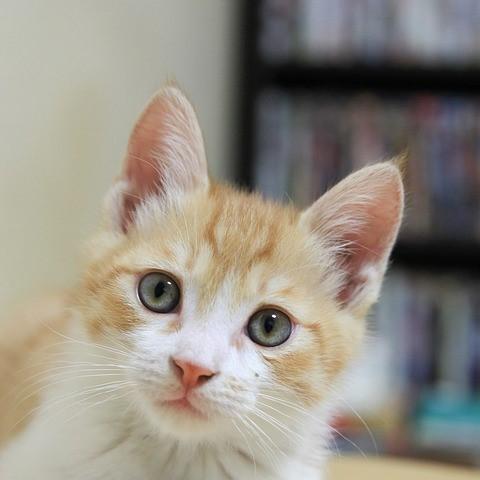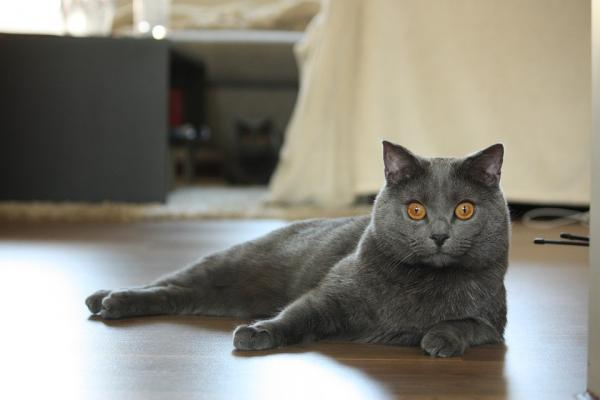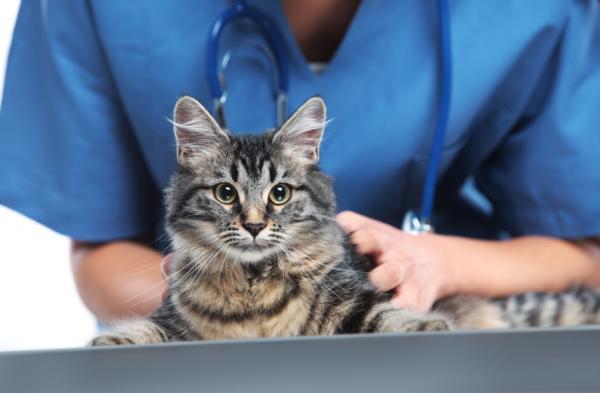How to care for an epileptic cat

Epilepsy is not a disease unique to humans, dogs and cats also suffer from it, being in these small cats much more common than we could initially think, which is due to numerous causes that range from genetic inheritance to various physical problems.
The symptoms of epilepsy in cats are very similar to those that a human could experience, and although the most characteristic is the seizure, in the feline we can also observe other signs that prepare us to provide the necessary assistance.
While it is true that a cat that presents this disease will need a variety of veterinary care, there are also certain recommendations that we must adopt at home. In this article we show you how to care for an epileptic cat in order to offer you the best quality of life possible.
Recognizing the symptoms of epilepsy in cats
Epilepsy in cats is a disease that becomes evident when our pet suffers a spontaneous seizureHowever, in order to be prepared to provide all the necessary help, we can recognize other symptoms that are more subtle but in turn indicate that it is very possible that a seizure will occur soon. These symptoms are the following:
- Nervousness
- Muscle stiffness
- Loss of balance
- Dificulty to walk
- Hyperventilation
- Excessive salivation
- Loss of sphincter control
- Difficulty eating and drinking
What you should not do during an epileptic seizure
Despite that there is pharmacological treatment indicated for feline epilepsy, it should be regulated periodically by the veterinarian and despite this it is possible that even our cat will experience an epileptic seizure. Let’s see what those are mistakes that we should avoid while the cat is suffering a seizure:
- Try to give some kind of food or drink: Usually during the seizure there is also loss of consciousness and therefore the cat could suffocate. During these moments you do not need to ingest anything at all.
- Cover it with a blanket: The cat does not have any type of conscience about his movements and to cover it with a blanket is not a good idea since it could get to hurt itself and even suffocate.
- Holding his head: For our part this is a very instinctive reaction, however, it is a serious mistake, because if we hold the head to our cat while his whole body moves involuntarily and suddenly there is a risk of the neck fracturing .

Tips to care for an epileptic cat
Sometimes it is not possible to avoid a seizure, therefore, what we can do so that an epileptic cat is well cared for is monitor our environment so that it is safe in any circumstance. Those guidelines that we should take into account are the following:
- Do not place any object that could be dangerous during an epileptic seizure in the areas that normally inhabit your cat.
- Keep your cat away from the stairs, at least when you can not supervise it. It is also possible to place nets in all those places that could entail a great danger for an unconscious cat and with strong muscular spasms.
- Keep the windows closed as long as you can not supervise your cat, as a seizure could prove fatal before an open window.
- Place a soft bed or cushion in those areas where your cat usually rests, in this way, if there is an epileptic seizure there will be a lower risk of physical injury.
- At the time of the attack, avoid environmental stimuli that may worsen the situation such as television or direct lights to the cat.
- Choose a specific quality diet for your age and physical activity. Remember that food is essential for a good state of health and for the body to have enough energy at all times.
- You can consult with your veterinarian the possibility of using synthetic pheromones with your cat, supplements that can improve your well-being at home, thus lowering your stress levels and promoting tranquility.
La Life expectancy of a cat with epilepsy is maintained around the 20 years, although to achieve such longevity are many cares that we must provide our pet. In the event that seizures occur very frequently, it will be necessary go to the vet to assess the condition of your cat and adjust the medication if necessary.

This article is merely informative, in .com we do not have the faculty to prescribe veterinary treatments or make any kind of diagnosis. We invite you to take your pet to the veterinarian in case of any type of condition or discomfort.
If you want to read more articles similar to How to care for an epileptic cat, we recommend that you enter in our section of Other health problems.


